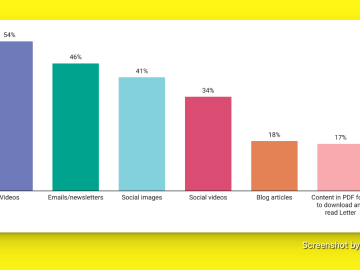Search Engine Optimisation aka SEO, is a word, every second person in the digital world, and even those not involved in the digital world is aware of. It is almost like love it or hate it, SEO is here to stay. So what is happening? Truthfully, SEO is evolving at a faster pace than ever before. Hence, inorder to save one’s rankings in 2024, you must be ready to reshape your SEO strategy to keep up with the constant algorithm updates. For companies that want to succeed, responsiveness is more important than ever. Staying in your comfort zone and clinging to what once worked won’t get you anywhere this year.
SEO is and continues to be valuable for companies who wants to drive traffic, leads, brand awareness, and, ultimately, revenue. As long as people uses search engines to find the information they need, SEO is still very much a thing. According to Leedfeeder, if a company receives 27% of all clicks if it or its content ranks first in Google’s organic search – and that’s not nothing. Next, if all clicks is at 15.8%, then it ranks second and so and so forth. So how to ace the SEO game? Let’s find out….
Content is the king and will remain so….

NP Singh: The marathon man of Sony

Amazon launches ‘India Se Duniya Tak’ campaign, showcases stories of Indian brands on the global stage

Tata Play drops prices; rolls out Super Saver Packs

Nazara’s NODWIN eyes 5-7 acquisitions in the next few years
From what it seems it 2023, AI began significantly influencing content creation and altering search algorithms. Google on its part specifically clarified that it’s primary aim is to deliver engaging, trustworthy content that effectively addresses users’ search intent. As the web has became saturated with Ai generated content, there has been a lot of emphasis on quality content which is noe becoming rare. A case in point is the number of updates Google continues to implement as it’s search algorithm is becoming stricter in its definition of rank-worthy content. Post AI, there has been a bigger emphasis on user intent and answering actual target audience questions. But from what it seems it is not only Google that is exhausted of low-quality content. Over half that is 57% of B2B sellers disregard marketing team’s content as generic and unresponsive, revealed data from Leedfeeder.
While AI is a good when it comes to scaling production of content, but quality cannot be sacrificed. User experience still needs to be the core of the content strategy. The latest Google algorithm changes also hint that human-like content will be favoured over AI-generated pieces.
The personal touch
As far as Google is concerned it prioritises websites that demonstrate a high level of Experience, Expertise, Authoritativeness, and Trustworthiness (E-E-A-T). If any website that showcases these qualities, it’s more likely that it will rank higher in the search engine results. As a result, publishers need to find ways to use AI to improve and scale up their content marketing efforts without losing the personal touch and expertise that only humans can bring.
Furthermore, it is believed that Google’s Search Generative Experience (SGE) gradually changing user behaviour through the provision of AI-generated results at the top of the SERPs (search engine results page). This is a page a reader usually see post punching a search. Typically, the goal with SGE is to increase user experience by delivering easily-understood answers to search queries. It also gives visuals, and suggestions for prompts, guiding users to continue search. Although SGE is not a chatbot, it works more like a conversational AI assistant rather than being just a search engine. It is expected that in the future this is the approach which will be followed for SERPs. As But, SGE hasn’t fully arrived yet. It will take some time before it dominates and totally disrupts the search.
How to prepare for SGE?
It is believed that SGE is all about answering to the point but in a fast and efficient manner. Using listing and dividing texts into various sections can make it easier for SGE to understand. In this case it is also important to cover the entire topic, as it is believed that SGE will refer users to other search results that cover the same or a similar topic. Hence, content clusters will play an important role. Images along with infographic is expected to play a role. However experts feel that it is too early to comment on the role of SGE, till such it is important to stick to creating high-quality, user-centric SEO content.
Why keywords matter?
Keyword research is critical as this is directly related to finding terms, search queries, and phrases your prospective customers are using in search engines. In addition, keyword research can help marketing teams and even SEO teams to discover the many ways users leverage search engines to find products and services like yours. What is to be noted there are some heavily competitive keywords and just because one publisher was successful with the implementation of those keywords, it does not guarantee that others will too. Therefore, it’s important that websites or publishers chooses target keywords that are within realistic reach. This is also important from the point of view that most of the online searchers do not scroll past the first page of the SERPs.
Moreover, if a website has low domain authority and hasn’t built up off-site signals with backlinks and link building, it’s unlikely web pages will rank on the first page for very competitive keywords. When selecting keywords it is important to look at factors such as realistic keyword difficulty score, besides strong monthly search volume, high cost-per-click (CPC) among others. Some of the tools publishers can use include Keyword Gap Analysers to check if the site lacks specific topics and themes used by competitors are doing well and Content Planners. In this case softwares automate keyword clustering and topic ideation. This free content planner tool can generate a content plan with one-click.
Follow us on Twitter, Instagram, LinkedIn, Facebook





